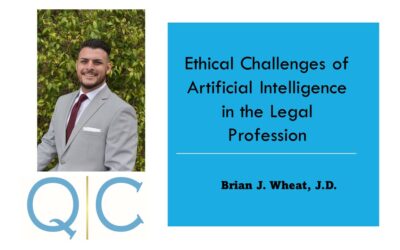Thirty years ago, the Ninth Circuit rejected a First Amendment challenge to a California statute which prohibits paid advertising of alcoholic beverages at retail outlets. In Actmedia Inc. v. Stroh (9th Cir. 1986) 830 F.2d 957, the court applied the four-pronged test of Central Hudson Gas & Electric Corp. v. Public Service Comm’n of New York (1980) 447 U.S. 557 to assess the constitutionality of a law that burdened commercial speech. That test asks: (1) whether the speech concerns a lawful activity and is not misleading; (2) whether the government has a substantial interest in regulating the speech; (3) whether the regulation serves to directly advance the asserted governmental interest; and (4) whether the regulation “is not more extensive than necessary.”
The law at issue in Actmedia was Business & Professions Code, § 25503(h), which prohibits manufacturers and wholesalers, as well as their agents, from giving anything of value to a retailer in exchange for on-site advertising. Actmedia was a corporation which leased advertising space on shopping carts. It challenged the law as an impermissible restriction on commercial speech in violation of the First Amendment. Applying the Central Hudson factors, the Ninth Circuit concluded the law was constitutional. The advertising of alcoholic beverages concerned a lawful activity and was not misleading, but California had a “substantial” interest in regulating the activities of the three “tiers” of the alcoholic beverage industry within its borders, and in promoting temperance. Section 25503(h) furthered that interest by limiting the ability of wholesalers to acquire influence over retail outlets, and by reducing the quantity of alcoholic beverage advertising in retail outlets. The court found the law was “narrowly drawn” to achieve these purposes, and not more extensive than necessary.
Since then, the US Supreme Court issued its decision in Sorrell v. IMS Health, Inc. (2011) 131 S.Ct. 2653. There, the Court held that content- or speaker-based restrictions on commercial speech are subject to “heightened judicial scrutiny” rather than the intermediate scrutiny set forth in Central Hudson. Under heightened scrutiny, the first two prongs of the analysis remain the same, but the third prong requires the government to demonstrate “that the harms it recites are real and that its restriction will in fact alleviate them to a material degree.” And under the fourth prong, the government must demonstrate that the law is specifically designed to achieve the government’s substantial interest.
In light of Sorrell, the Ninth Circuit agreed to revisit the constitutionality of section 25503(f)-(h) in the case of Retail Digital Network, LLC v. Appelsmith (2016) 810 F.3d 638. Retail Digital Network is a corporation which leases advertising space on LCD displays in retail outlets. It challenged the constitutionality of section 25503(f)-(h) after alcoholic beverage manufacturers refused to contract with it for advertising space based on fears of violating the statute. The Court found that because the statute prohibits the retail advertising of alcoholic beverages by manufacturers and wholesalers, it is both content-based and speaker-based, and must therefore survive “heightened judicial scrutiny” under Sorrell. Actmedia, which applied the intermediate scrutiny of Central Hudson, is inconsistent with Sorrell and therefore no longer controlling.
The Ninth Circuit sent Retail Digital Network back to the district court to develop the factual record and apply the proper test. And while the Ninth Circuit acknowledged the validity of the State’s interest in the three-tier system, and in promoting temperance, it also indicated the district court “should consider whether the State has shown that there is a real danger that paid advertising of alcoholic beverages would lead to vertical or horizontal integration under circumstances existing in the alcoholic beverage market today” and in the circumstance of this particular case, where payments are made not by the manufacturer or wholesaler directly, but by a third party. The court also directed the district court to consider whether section 25530(f)-(h) “materially advances” the State’s interests in light of the numerous statutory exceptions to these provisions. Finally, the court emphasized that heightened scrutiny must be provided to the question of whether the statutory provisions are “narrowly tailored” to achieve the State’s goals or whether those interests might be achieved by means other than the burdening of commercial speech.
This is definitely a case to watch, with significant implications for the advertising of alcoholic beverages in California. And whatever the district court decides, another appeal is likely to follow.




